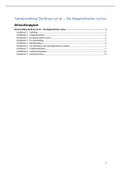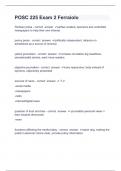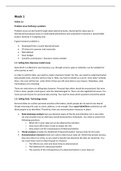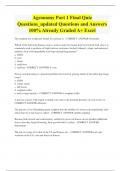Strategies for Leadership to Embrace Multigenerational Diversity in the Work Environment
For this assignment, you will write a paper to examine the different approaches to managing different generations and creating a
work culture that fosters success while embracing generational diversity.
As you respond to the paper prompts, consider how you, as their manager, will communicate to the diverse and multigenerational
workforce within your specific professional field or industry.
Your paper will be given from your perspective as a manager of four employees, representing each of the prevalent workforce
generations: Baby Boomer, Generation X, Millennial, and Generation Z. Your paper must address the following:
Begin by comparing how the four different generations differ as individuals and as a member of their generational
cohort.
Next, compare the workplace assumptions and career development expectations of each generation/ individual.
Then, convey effective strategies or plans you would use as their manager to engage and empower each individual to
foster their distinct work-life balance and career development needs and expectations. Be sure to include specific
examples to support your plan. Examine what you believe are the most pressing communication issues or challenges for
management that may arise from having these individuals/multiple generations in the same workplace.
Discuss three communication strategies that you would prioritize and use to foster multigenerational cooperation and
engagement between the individuals.
Explain how your approach might differ if these individuals were working remote or virtually. Give specific challenges,
for each individual, to work-life balance and career development that must be addressed when managing this virtual
team.
Summarize how your awareness and understanding of these multigenerational concepts addressed above can affect your
future growth as a leader or manager.
You can offer your own personal experience and opinions in this paper, as well as facts from peer-reviewed articles. Although
your opinion or belief may be based on experience and not necessarily a truth claim, you should always attempt to provide a
citation and reference that supports your idea or view from the research articles.
Managing a Diverse, Multigenerational Workforce
, 2
Managing a Diverse, Multigenerational Workforce
In this era of fast development in the economic arena, companies are now showing the
tendency to be more responsive when it comes to the diversity of generations among employees.
Employers put different generations of employees at their disposal, from traditionalists to
iGeneration. Despite this advantage, there are also some disadvantages that companies must deal
with, such as implementing efficient communication, motivation, and collaboration among these
diverse groups (Kramb, 2020). This training plan aims to give managers knowledge and
strategies to use in a multigenerational environment where a high success rate will be achieved.
Understanding the Five Generations in the Workforce
Traditionalists, born before 1946, have a reputation for being disciplined, faithful, and
conservative, and this is how the mindset of traditionalist elders can be described. They like face-
to-face communication modes, written correspondence in a formal way, remuneration for the
expressed work, job security, and respect for their experience (Mufti, 2021).
The baby boomers, the people who were born between 1946 and 1964, are hard-working,
competitive, and dedicated to personal growth. They would rather talk directly and value dialog
face-to-face, and they remain competitive and enthusiastic about notching new feats and jumps
and getting rightly rewarded for every one of their accomplishments (Dimock, 2019).
Those from Generation X, which fell between 1965 and 1980, possess qualities like
independence, pragmatism, and digital know-how. They prioritize face-to-face conversations and
achieve them by focusing on work-life balance (Dimock, 2019). Their best motivational path is
to be given autonomy and opportunities for professional development.
Millennials born within the 1981–1996 timeframe are technophiles and socially involved,
and they see life balance as a precondition for a fulfilling career. They value using technology





